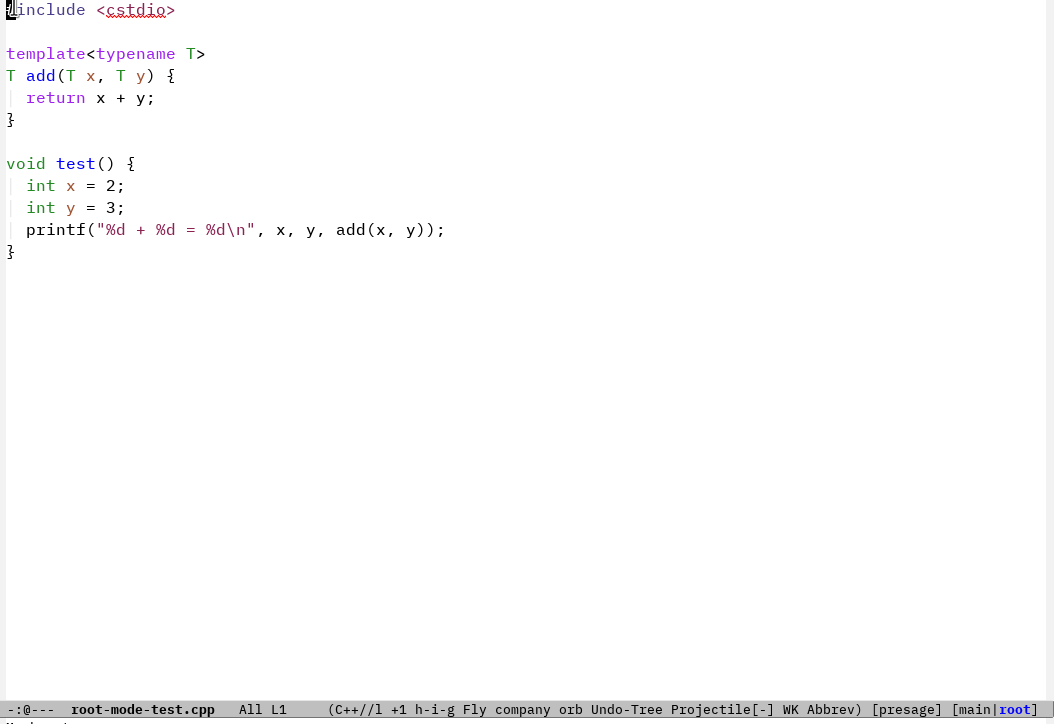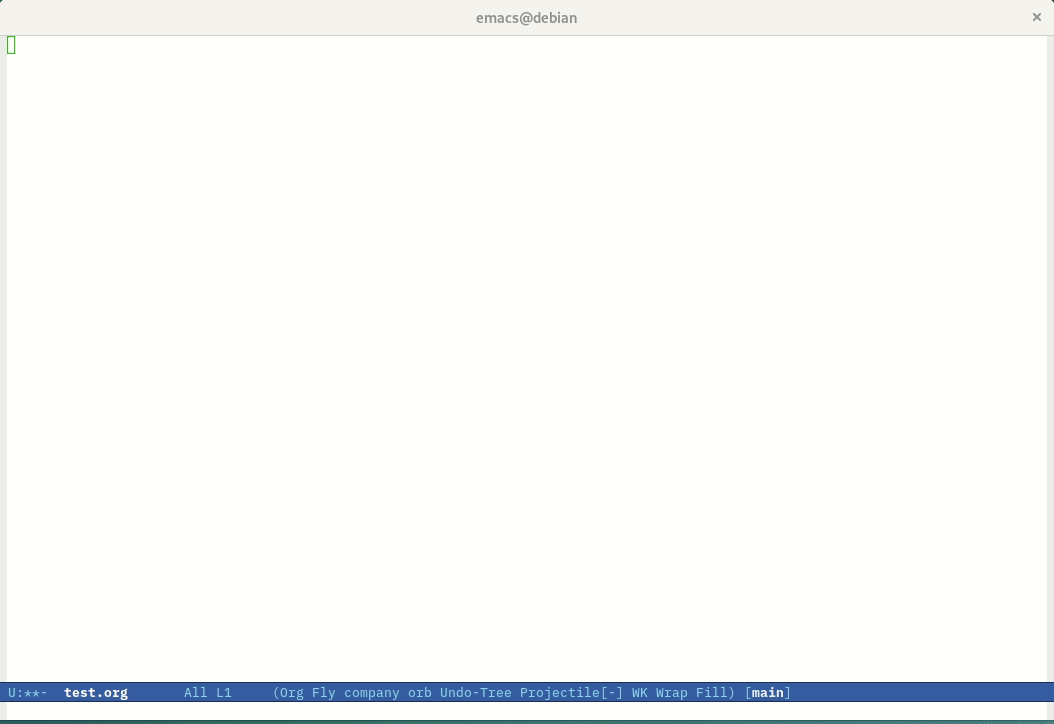CERN-ROOT-mode is an Emacs major-mode for interacting with ROOT (https://root.cern/). Specifically, this package provides the facilities to run the ROOT command line interface/REPL.
You can install the package from melpa, or use straight.el and download the package directly from this github repository. Here is one example of installing/configuring the package with straight.el:
(use-package cern-root-mode
:bind (:map c++-mode-map
(("C-c C-c" . cern-root-eval-defun)
("C-c C-b" . cern-root-eval-buffer)
("C-c C-l" . cern-root-eval-file)
("C-c C-r" . cern-root-eval-region)))
:straight (cern-root-mode :type git :host github :repo "jaypmorgan/cern-root-mode")
:config
(setq cern-root-filepath "/path/to/root"))There are only a few variables provided by the package:
- cern-root-filepath -- (string, default
"root") this is the absolute/relative path to the root executable. This could be left as the default "root" value if ROOT is available on your $PATH. - cern-root-command-option -- (string, default
"") these are the command line options used when starting ROOT. By default there are no options. - cern-root-prompt-regex -- (string, default
"^\\[[0-9;^k]+m?") this is the regular expression used to find the input prompt of the ROOT REPL. If there is a customised prompt, this will need to be updated to suit the customisation. - cern-root-buffer-name -- (string, default
"*ROOT*") what to call the ROOT repl buffer when it starts. This could be left as the default*ROOT*, but its there for you to modify as you please. - cern-root-terminal-backend -- (symbol, default
'terminal) the terminal emulator to run the ROOT instance in. There are only two current defined [vterm,inferior]. By default, the terminal backend is set toinferior. Though, there is still some issues in getting the auto-complete to work correctly. If you really need auto-complete, I would recommend switching the backend to'vterm(requires you've already installed vterm).
Below is listed the various commands provided by the package.
| Command | Description |
|---|---|
cern-root-run |
Start the ROOT REPL in the same window. |
cern-root-run-other-window |
Start the ROOT REPL in a different window. |
cern-root-switch-to-repl |
Move the cursor to the ROOT REPL. |
cern-root-eval-region |
Evaluate a marked region in ROOT. |
cern-root-eval-line |
Evaluate this line in the REPL. |
cern-root-eval-string |
(non-interactive function) Evaluate a string in the REPL. |
cern-root-eval-defun |
Evaluate the current function in ROOT (current as defined by cursor position). |
cern-root-eval-defun-maybe |
If the cursor is within a function declaration, then evaluate this function, else we'll evaluate this single line. |
cern-root-eval-buffer |
Evaluate the current buffer in ROOT. |
cern-root-eval-file |
Evaluate a file (using the '.L' syntax), prompt for a file. |
cern-root-change-working-directory |
Change the working directory of the root session, prompt for a directory. |
cern-root-list-input-history |
List the previously input statements and for selection. |
CERN-ROOT-mode provides the functionality to execute C++ source code blocks using the ROOT REPL instead of the default C++ executable. This can make the process of writing C++ in org-mode more fluid.
To write C++ code blocks that then are executed using ROOT, specify
cern-root as the language in the begin_src header. For example:
#+begin_src cern-root
// write your code here.
#+end_src
Upon executing this code block (such as with C-c C-c), this code
will be executed in the ROOT REPL instead.
Code can be written and re-used over multiple code blocks with the use
of the :session argument (with an optional name). By providing this
argument, a ROOT REPL instance will be created that can be used within
the context of many source blocks. For example, let's create another
code block with this session argument:
#+begin_src cern-root :session *my-root-session*
void test() {
// print something
printf("This is something");
}
#+end_src
When we first run this code block, CERN-ROOT-mode will create a new
instance of the ROOT REPL in the buffer named 'my-root-session' (you
can switch to this buffer if you want to interact directly outside of
the code blocks!). This means that, by specifying the same argument to
a different code block, we can call this test function.
#+begin_src cern-root :session *my-root-session*
test(); // call the test function
#+end_src
This gets us a long way to achieving the same functionality as root --notebook, but in Emacs.
To test the functionality of the package, some unit tests have been
stored in the tests/ directory. To run these unit tests, you can
either evaluate the specific buffer in Emacs and run ert (see
https://www.gnu.org/software/emacs/manual/html_node/ert/Running-Tests-Interactively.html
for more information), or you can them all from the command line
using the Makefile:
make test- inferior-cling: https://github.com/brianqq/inferior-cling. This package hasn't been updated in quite a while, and is light on functionality. CERN-ROOT-mode attempts to go beyond this to make the process of interacting with the REPL more seamless. There are also other ongoing issues such as duplicated input (https://root-forum.cern.ch/t/interactive-input-in-emacs-is-echoed-progressively/24113) in dumb terminals (root-project/cling#99) which have yet to be merged in cling. CERN-ROOT-mode solves these problems while we're waiting for the pull-request to be accepted. CERN-ROOT-mode also aims to support org-babel to allow one to execute C++ source code blocks from within an org-mode document.

